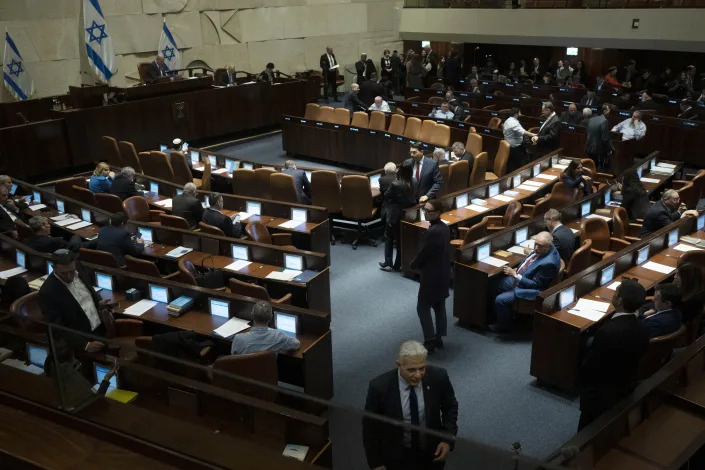POLITICAL DEVELOPMENTS of recent years have pushed the question of fascism to the forefront of many people’s minds. The word was used occasionally during the first decade of the 21st century, as a way of condemning the policies of the Bush administration. But that was typically in a spirit of purposeful exaggeration. In the era of Trump, claims that our political situation is incipiently fascist are losing their theatrical character. Predictably enough, such concerns are met by loud objections that the f-word is not appropriate, subject to inflation, and should be reserved for describing specific historical instances. But more and more, such objections feel like desperate attempts to deny the growing pertinence of the word. When the mainstream media pundits and outlets debate whether or not it is permissible to refer as “concentration camps” to the border camps where people of color are locked up and abused, such desperation becomes palpable.
Of course, there are no easy historical parallels to draw. Trump’s self-identification with the spirit of American do-it-yourself individualism may be laughable, but it does put him at some distance from the corporatist spirit of interwar fascism. And it is hard to imagine him being actively interested in or capable of organizing a systematic militarization of everyday life. But perhaps the main, and most worrisome, argument used to soothe political spirits is that Trump’s fascism has remained stuck at the level of rhetoric, its forward movement blocked both by his own incompetence and by the “deep state,” the historically grown layers of bureaucratic power that will put the brakes on the implementation of any radical plan. Such arguments work with a naïve understanding of how political rhetoric and practice interact.
If there are lessons to learn from the 1930s, they would certainly have to include that the most violent material horrors start out with the power of rhetoric and that routine-driven bureaucracies can come to serve as reliable functionaries of fascist regimes. In fact, the growing sense that fascism is in the air has everything to do
precisely with this renewed emotional charge, the effectiveness with which Trump’s virulent rhetoric taps into the grievances of a white working or middle class and encourages it to embrace, revitalize, and act on its prejudices. After all, Trump’s policies are certainly a few steps up from those pursued by the Bush administration, but they can hardly be said to represent a drastic escalation of them. The most significant shift is that whereas the latter still dressed up its policies in terms of the unifying language of national security and opportunity for all (no matter how perfunctory this may have sounded), Trump is far more forthright about the fact that his policies are meant to divide the worthy from the unworthy.
The concept of fascism does not appear prominently in Wendy Brown’s latest book,
In the Ruins of Neoliberalism: The Rise of Antidemocratic Politics in the West,
[1] but one gets the feeling that it is constantly on the tip of her tongue. Instead, the book engages with another concept: neoliberalism. While certainly less politically charged and contentious than the concept of fascism, in recent years it has given rise to debates characterized by oddly similar dynamics: alongside the growing awareness that the implementation of a neoliberal project has been central to the shape of the present, a chorus of voices has risen to decry this as conspiracy thinking.
Such objections are not always unreasonable: many contributions to the burgeoning literature assume a far too straightforward translation of neoliberal theory into practice. But Brown’s take is more subtle. Already in her previous book,
Undoing the Demos: Neoliberalism’s Stealth Revolution,
[2] she followed Foucault by emphasizing the workings of a more diffuse market ethos, referred to as “neoliberal reason.” She also followed Foucault’s argument that neoliberalism represented not a return to classic neoliberalism but was instead a more imperialist project — no longer limiting itself to the economic sphere, it aims to marketize and rationalize politics. The book depicted
homo politicus as being absorbed by
homo economicus, and it saw the rise of entrepreneurial subjectivity and human capital thinking as displacing democratic politics and public deliberation.
Undoing the Demos has been an extraordinarily influential book, and deservedly so. It connected two ways of seeing the world — political theory and political economy — that have long been immune to each other’s insights, and did so to great effect, offering a wide-ranging analysis of some of the most important issues plaguing contemporary polities, and pressing theoretical points into the service of a convincing analysis of the commercialization of higher education.
As tends to be the case with defining works, the book raised as many questions as it answered. In one of the more insightful reviews, Annie McClanahan argued that in an important sense neoliberalism has meant not the rise but the decline of human capital, i.e., its devaluation. As she puts it,
by characterizing neoliberalism through a specific kind of entrepreneurial subject — the subject who polishes her college application, who selects among schools for his kid, who improves her scholarly CV through obtaining national grants — we miss the possibility that neoliberalism is not the becoming-economic of the non-economic, but rather the introduction of economic exigencies into the lives of a group — white, educated, upper middle-class citizens of the developed world — formerly protected from them. [3]
This also led McClanahan to wonder if Brown might have overstated the internal coherence of neoliberal governance. The neoliberal subjects she sees do not respond to increased precarity simply by stepping up their commitment to entrepreneurial principles, but they often also react in less functional, more politicized and potentially disruptive ways.
I think McClanahan’s points raise the question: was Brown’s diagnosis of the effects of neoliberalism in terms of dedemocratization meant to be primarily a normative or a descriptive claim? Most people likely to pick up an academic book on neoliberalism will agree that there is something antidemocratic about it, but that does not by itself amount to an accurate description of the way neoliberalism operates in a society with (compromised and limited but real) democratic institutions. Indeed, Brown seemed to associate neoliberalism primarily with the dreams of technocratic governance through market metrics that Third Way politics like Clinton, Blair, and Obama entertained, rather than with the more ideologically charged mixture of authoritarian and populist impulses that marked the politics of Thatcher, Reagan, and Bush.
But that was before Trump. Brown explains that she started working on
In the Ruins of Neoliberalism in response to the shock of the 2016 presidential election, and indeed Trump’s presence can be felt on every page. The book builds directly on her previous one to consider how we should understand the troubling political dynamics that have been so apparent in recent years. It begins by revising the definition of neoliberalism, noting that by focusing on the rationalizing and utilitarian thrust of neoliberalism,
Undoing the Demos might have inadvertently privileged the civilized appearances of neoliberalism over its more virulent manifestations.
In the Ruins of Neoliberalism therefore places more emphasis on neoliberalism’s moral aspect and the way this has permitted an organic alliance with reactionary neoconservatism and its concern to restore traditional morality. Neoliberalism is now understood as a “market-and-morals project.”
[4]Taken by itself, bringing norms back into the picture is a familiar move as a way to criticize capitalism or economics. But Brown is not looking for trite reassurances of the survival of moral sentiment or human compassion. Indeed, the picture becomes even bleaker. Neoliberalism’s objective is not simply the marketization of politics as such, with democracy as collateral damage, but it is driven by a more active animosity toward the idea of a people ruling itself: “More than submitted to an economizing semiotics, as I argued in
Undoing the Demos, democracy is explicitly demonized.”
[5]But is this really the case? Is democracy no longer simply limited and compromised but actively portrayed as a bad thing? Can neoliberals brazenly declare that they act on behalf of elite interests and that the will of the people is secondary? I find it difficult to recognize that as an accurate picture of contemporary political discourse — as far as I can see, claiming to speak in the name of the people remains as imperative as ever. And is the problem with Trump really that he is not democratic? It is not an entirely implausible way of framing the problem of course, but it seems a little defensive. It’s a little like complaining about “how someone is arguing” when the real issue you have is with what they feel or do. Of course, one can see the reasons for adopting that position even if one has reservations about how democratic our actually existing democracy has been at the best of times — that is, “democracy may not exist but we’ll miss it when it’s gone,” as the title of a recent book puts it.
[6] But isn’t the political problem experienced by progressives in the current moment precisely that such principled defenses of democracy have lost traction? What does it mean to stand up for democracy in a context where actually existing democracy produces Trump and where crowds are so easily provoked into spontaneous “send her back” chants? Should the Trump phenomenon not lead us to undertake a significant reconsideration of what we mean by democracy?
Of course, Brown would be the first to recognize that the situation would be worse rather than better if Trump got a larger percentage of the American population on board (and in that sense became more democratic). For Brown, democracy is something more complex than simple majority rule through representative institutions. Her understanding of democracy is rooted in a broadly republican tradition that centers on civic virtue and active citizenship as distinctive qualities of the
homo politicus. This is clearly an appealing vision of politics, but I wonder if it can really work as a measure to assess the present by. After all, if neoliberalism is the main source of dedemocratization, we would presumably be looking for a more meaningful democracy in the period before the 1970s. Not only was the democratic system in place then hardly known for its civic virtue, and not only was the relative sanity of the public sphere bought at the expense of harsh racial exclusions and strict gender hierarchies; even at that very time a republican thinker like Hannah Arendt was expressing similar sentiments about the decline of politics. The problem here is the appeal to an abstract standard of democracy that has difficulty communicating with the world of actually existing democracy. In the public arena of the Trump era, all those desirable features of a rational democratic polity are systematically ridiculed, to great democratic effect.
Brown aims to keep her distance from the judgmental style of analysis that was expressed in the title of
What’s the Matter with Kansas? [7] and more recently led Hillary Clinton to speak about the “basket of deplorables,” but she finds it difficult. So, when she writes about “aggrieved white midlanders” who “reflexively roar against abortion, same-sex marriage, Islam, ‘attacks on whites,’ godlessness, and intellectualism,” she isn’t willing to view this as manifesting neoliberalism’s traditional morality: “This is not ‘tradition’ or even morality speaking, but hatred of a world perceived to be wishing and washing theirs away.”
[8] But of course, this leaves one wondering what the emphasis on traditional morality was meant to accomplish. I don’t think Brown is trying to file bourgeois forms of exclusion under “traditional values,” and cruder forms of racism and misogyny emanating from the lower classes under “nihilistic resentment.” But the logic of her argument seems to push in that direction.
Brown speaks of “populist rage attacking democracy,”
[9] but she doesn’t thematize the paradox that this formulation hints at. The way in which the power of the people turns on itself is something that post-Marxist authors like Claude Lefort and Ernesto Laclau wrote on, but they receive short shrift in Brown’s book. That is perhaps understandable, as such authors had little to say about capital, economic policy, or neoliberalism, which are the things that Brown wants to connect to questions of political theory. But, even so, to describe the process as one of dedemocratization at the hands of an outside force is oddly old-fashioned, reminiscent of the more structuralist Marxist analyses that Brown is keen to dissociate her approach from.
Is the problem that neoliberalism has produced a “political deficit”? Or is the problem that neoliberalism has redistributed opportunities in ways that demand ample political expression and lead to the kind of unruly spectacles that we are currently witnessing, where competing sources of discontent offer endless opportunities for demagoguery? To frame the problem as the alliance of markets and traditional morals does not sufficiently recognize the depth of this well of discontent, nor the volatility and potential explosiveness of its activation. Reaction does not so much work against but
through the world of actually existing democracy: it involves the continuous provocation of popular energies to legitimate authoritarian impulses that inflict violence on those at the margins.
We should turn to Brown’s treatment of Hayek here. In political theory, it has become commonplace to say that, for all Hayek’s concern with the free market, he had deep affinities with authoritarianism and was happy to rely on the strong hand of the state when it came to the enforcement and maintenance of neoliberalism. Brown avoids that argument, instead noting the difference between Hayek and Nazi political theorist Carl Schmitt: “Hayek concurs with Schmitt that sovereignty is a secularized theological concept, but, unlike Schmitt, regards sovereignty as false and dangerous
because it is theological.”
[10] But she takes this wholesale rejection of sovereignty as only affirming his anti-democratic stance (because it also rejects popular sovereignty). Surely, however, there is something progressive about the suspicion of authority, even when it has been put in place by a democratic public?
Here we should recognize Hayek’s
own connections to the republican tradition, which are easy to miss if we concentrate on Hayek’s political writings, as Brown does. If we ignore the specific way Hayek understands economic life, it is difficult for him to appear as more than a minor ideologue offering an uninspired, warmed-over version of classic liberalism. Hayek saw himself as outlining a philosophy of order that did not just aim to cut off the king’s head but also to prevent any tyrannical schemes the people themselves might be tempted to construct — that is, to preempt any resurgence of political theology in the modern age. For him, the discovery of the market as a mechanism of secular self-regulation, without need for either divine intervention or conscious human regulation, was central here. This version of republicanism may be less romantic, but it nonetheless contains a compelling political fantasy that neoliberalism has deployed to great effect: it imagines the market as a guarantor of political neutrality, a source of institutional protection against the entanglement of wealth and authority.
We won’t be able to understand the making of neoliberal society unless we recognize the ethical charge generated by this neoliberal-republican image of market order. Yet it is common for critical perspectives on contemporary politics to underestimate its emotional appeal and popular traction. And in this way, they often end up feeding the logic at work, which systematically resists progressive arguments about the pernicious effects of real-world markets and attempts to fact-check the record of neoliberalism. Every piece of evidence demonstrating that the world doesn’t resemble a free market comes to serve as yet so much more evidence of the depth of corruption and therefore only serves to reinforce the need to “drain the swamp.” Of course, Trump-style theatrics often appear far removed from any actual economic issues, but that is precisely the point. Trump’s key strength is to reject responsibility for
any existing problems, and he has
fully committed himself to the business of blaming minorities and the progressives that coddle them. The result is a sort of centrifugal dynamic of hatred that aims to suck in any and all expressions of social discontent. To progressives this project seems highly uncivilized, but to the many Americans who support Trump this uncompromising stance seems like a highly
principled unconditional refusal to accommodate himself to existing political realities.
In other words, the market, imagined as a decentralized coordination mechanism that ensures that people get what they deserve and works to prevent illegitimate concentrations of power, induces a certain fanaticism that breaks out of the bounds of civilized public debate. Unable to see its own limitations, neoliberal reason can only understand the failure of its core fantasy as the result of corruption by an external force: when the market fails to produce both freedom and social order, there must be a conspiracy at work. This is the distinctive way in which a mentality that takes itself to be rational and secular (answering to no higher authority than the welfare of the people itself) becomes irrational and tends toward conspiracy thinking and scapegoating. Moreover, it is characterized by a certain relentlessness because it recognizes no external limitations as legitimate. If we fail to note the ethical charge of the image of social order around which this unsavory logic revolves, our analysis of the present will only ever get so far.
The logic at work here motivates and legitimates the exclusions and oppressions that permit the partial realization of the republican imaginary. Emotional investment in the idea of the modern economy as a mechanism that lifts all boats has always been deeply bound up with the possibility of limiting its universality, of excluding parts of the population from its benefits in more or less stable ways. Capitalist regimes of relative equality — whether among colonial settlers or unionized workers — function on the basis of an elaborate systems of racial and gendered hierarchy, the organization of society around biopolitical distinctions that rank forms of life. This is not a precapitalist or traditional leftover, but the distinctive product of modern capitalism.
These points, echoing the notion of fascism as a product of the dialectics of modernity, aren’t perhaps all that far from the argument developed in
In the Ruins of Neoliberalism. The book’s pessimism at times channels the spirit of Adorno: it offers no anticipation of redemption, no announcement of a countermovement, no promise of a better future — all highly refreshing in a public sphere that puts such a premium on the profession of optimism. But even though Brown is not tempted to issue the promises of restoration that typically accompany diagnoses of decline, that does not by itself dissociate her intervention from the logic at work. The implicit appeal to a more democratic past is, at best, politically disorienting. The way the book holds up an ideal notion of democracy unintentionally serves to maintain a certain fantasy about community, one that abstracts from the exclusions and hierarchies that most readily available communal identities are built on.
[11] In previous work, Brown herself has offered penetrating critiques of contemporary community and its boundaries,
[12] so it is no surprise that she keeps her distance from the implications of this political fantasy — but that is just not the same as critically engaging or deconstructing it.
Central to neoliberalism’s real-world success and resilience is the psychopolitics that it has fostered. Brown recognizes this, but her concern to develop an accurate social-scientific definition of neoliberalism means that she becomes focused on the extent to which social reality corresponds to neoliberal ideology — and this is a significant hindrance when it comes to fully plumbing the depths of neoliberalism’s emotional and psychological logics. However we define neoliberalism, we will always find that it has managed to live up to its own image only for the briefest of moments (perhaps the 1990s, if we focus on Clinton’s infusion of public management with market metrics and overlook the mass incarceration, or the Bush administration before 9/11, if we take at face value what they meant by traditional morality). Being too troubled by this is how social scientists are currently filling entire books and journals questioning whether neoliberalism is even a real thing. Brown’s willingness to expand or revise her definition of neoliberalism is welcome, but it is not a substitute for the kind of analysis that locates the power of neoliberalism
within the tension between ideology and practice, fantasy and reality.
The last chapters of the book seem to be driven by an awareness of this: they offer a powerful account of the strange affinities and paradoxical psychological dynamics fostered in the contemporary political climate. Revisiting themes from her earlier work, Brown advances a compelling analysis of how nihilism and resentment have mixed to supercharge logics of exclusion in the era of Trump. But here too the definitional issue rears its head. Even on the expanded understanding of neoliberalism as rationalization plus traditional morals, Trump is seen to be breaking the neoliberal mold: “[W]here nihilism intersects neoliberalism, freedom is torn out of the habitus in traditional values by which it was to be contained and disciplined in the original neoliberal formation.”
[13] And so Brown ends up seeing the rise of Trump as a symptom of the decline of neoliberalism, the growing difficulty of holding society together on the basis of a market ethos and traditional morals alone, in the absence of a coherent democratic political vision or a democratic public sphere.
Brown’s analysis of the Trump phenomenon makes highly effective use of Marcuse’s notion of “repressive desublimation,” which captures the way subjective expressions that strain against existing social norms and therefore feel authentic and liberating can in fact work to deepen the existing systems of power and its oppressions. Trump is certainly the richest manifestation of repressive desublimation, but Marcuse’s notion can also be easily read as a critique of Hayek’s philosophy of liberalism, which imagined individuals letting loose and unintentionally giving rise to an order that would not be experienced as oppressive by anyone in particular, where nobody’s freedom comes at the expense of anyone else’s. If we
had to single out one quality as defining neoliberalism, it might be its ability to catalyze and deploy these psychological dynamics, reflecting our affinities with oppression back to us as opportunities for achieving more authentic ways of living and a social order beyond domination. And this also means that the mechanisms at work are probably less fragile than Brown assumes. For the political deployment of desublimation is self-reinforcing and sets up what I think of as the “Hillbilly Elegy trap”
[14]: even the most glaring spotlights on the dysfunctions and prejudices of the white working class somehow work to reinforce its status as the moral backbone of the nation.
This does not mean that Trump is a neoliberal in any doctrinal sense. His political style signals an important shift. If the willingness of elites to provoke forces for which they do not have a user manual has been on the rise for several decades now, until recently they still refrained from fully capitalizing on the possibilities that such popular energies held. Trump’s abandonment of such reservations — his determination to stay the course and constantly double down on his flirtations with fascism — marks a significant change. But this shift from “dog-whistle politics” to active desublimation is better explored as a resurgence of fascism than as a decline of something else. The notion that neoliberalism is now a spent force is only plausible if we took the label too literally in the first place — if we viewed it as a discrete historical phase rather than as a powerful renewal of the fantasy of the market.
To frame the problem of emergent fascism as a conflict between neoliberalism and democracy feels too defensive, an attempt to keep the problem manageable at the level of theory even as it feels increasingly less so in the real world. In that sense, it’s almost as if
In the Ruins of Neoliberalism is too purposely driven by the political urgency of the moment. That undercuts what makes Brown such a compelling political thinker — her unique ability to resist the terms in which political problematics present themselves and to reframe them in a way that opens up new lines of sight. In this book, that ability is richly on display in her analysis of the paradoxical identity politics fostered by the rise of desublimation as a political technique — which can be read as an elaboration of her profound earlier insights into the logic of “wounded attachments.”
[15] But the sheer fecundity of those pages has the effect of reinforcing the sense that we are dealing with dynamic combinations of psychopolitical forces on which the existing categories of political theory and political economy just do not provide all that much grip. We moderns can come to view our most banal, unexamined sentiments as signposts on the road to redemption. A politically effective understanding of this paradoxical logic will elude any perspective that assesses actually existing democracy against an image of reasoned public debate. And we don’t have to imagine that past fascists were rational, competent creatures in order to think that this emotional logic may well be the key driving force behind the resurgence of fascism in neoliberal times.
¤
September 22, 2019
Martijn Konings works in the Department of Political Economy at the University of Sydney. His latest book is Capital and Time: For a New Critique of Neoliberal Reason (Stanford University Press 2018).¤
[1] Columbia University Press, 2019.
[2] Zone Books, 2015.
[3] “Becoming Non-Economic: Human Capital Theory and Wendy Brown’s
Undoing the Demos”,
Theory & Event, 20(2), p. 512.
[4] In the Ruins of Neoliberalism, pp. 15-6.
[5] In the Ruins of Neoliberalism, p. 86.
[6] Astra Taylor,
Democracy May Not Exist but We’ll Miss It When It’s Gone, Metropolitan Books, 2019.
[7] Thomas Frank,
What’s the Matter with Kansas? How Conservatives Won the Heart of America, Holt, 2004.
[8] In the Ruins of Neoliberalism, p. 121.
[9] In the Ruins of Neoliberalism, p. 87.
[10] In the Ruins of Neoliberalism, pp. 70.
[11] Miranda Johnson,
Against the Romance of Community, University of Minnesota Press, 2002.
[12] Walled States, Waning Sovereignty, Zone books, 2010.
[13] In the Ruins of Neoliberalism, pp. 171.
[14] After J.D. Vance,
Hillbilly Elegy: A Memoir of a Family and Culture in Crisis, Harper, 2016.
[15] States of Injury: Power and Freedom in Late Modernity, Princeton University Press, 1995.





:quality(70)/cloudfront-eu-central-1.images.arcpublishing.com/thenational/3JGRHV626IGQSQE3MBIMK6FV54.jpg)







/https%3A%2F%2Fdev.lareviewofbooks.org%2Fwp-content%2Fuploads%2F2019%2F09%2Fintheruinsofneoliberalism.jpg)